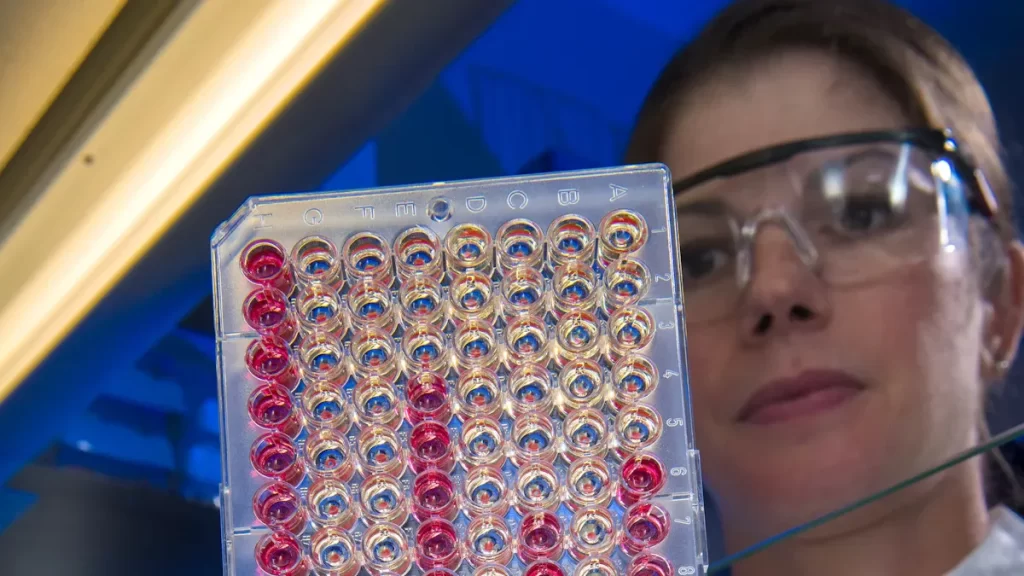Antibody knowledge
Choosing the Right Laboratory Method for Ab Rubella IgG Testing
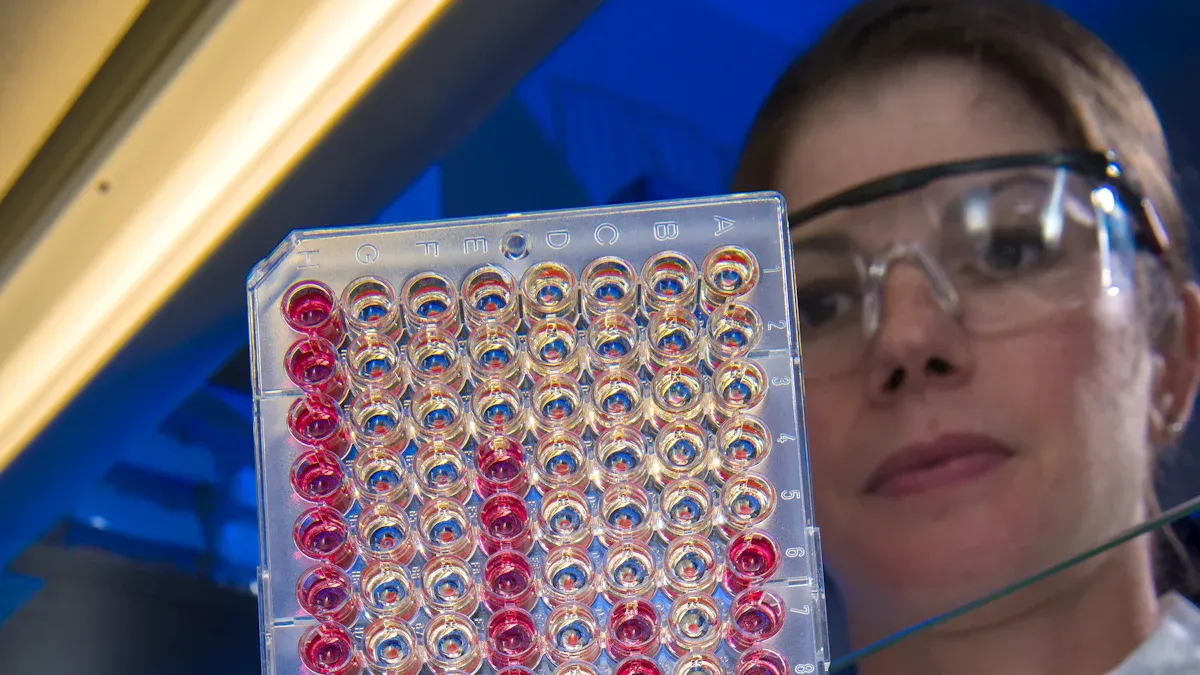
Rubella immunity plays a vital role in protecting you and your community, especially if you plan to become pregnant. Some countries report high immunity rates among women, such as Iran with 98.3% and Spain with 97.7%, while places like Turkey and India show lower rates, at 73% and 85% respectively. When you choose a laboratory method for ab rubella igg testing, you gain the power to detect immunity accurately. Understanding how methods like ELISA and immunoprecipitation differ helps you get reliable results.
Key Takeaways
Choose the right laboratory method for rubella IgG testing to ensure accurate detection of immunity. ELISA is the gold standard due to its high sensitivity and specificity.
Understand your rubella IgG test results. A result above 10 IU/mL indicates immunity, while below 7 IU/mL means you are not immune and may need vaccination.
Get tested for rubella IgG before pregnancy. This helps protect your future child from serious health risks associated with rubella infection.
Follow preparation guidelines for the test. Avoid exercise, smoking, and alcohol before testing to ensure the most accurate results.
Consult your healthcare provider for personalized advice based on your test results. They can guide you on vaccination and necessary precautions.
Ab Rubella IgG Testing Methods
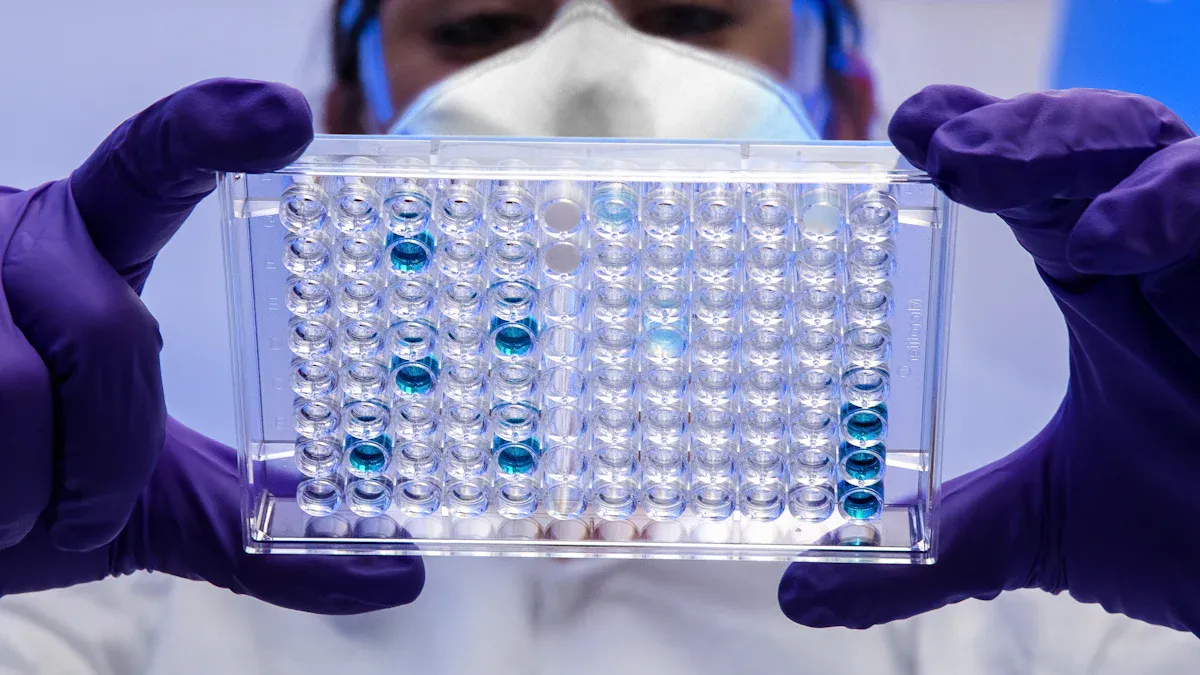
When you want to know your rubella immune status, you need to choose the right laboratory method. Each method for the rubella igg antibody test has its own strengths and weaknesses. You can see how different test systems compare in the table below.
Test System | Sensitivity | Specificity | Accuracy |
|---|---|---|---|
IMx | 96% | 97% | 96% |
Rubazyme | 100% | 99% | 99% |
Rubascan | 100% | 98% | 99% |
Rubalex | 99% | 97% | 98% |
FIAX | 90% | 100% | 95% |
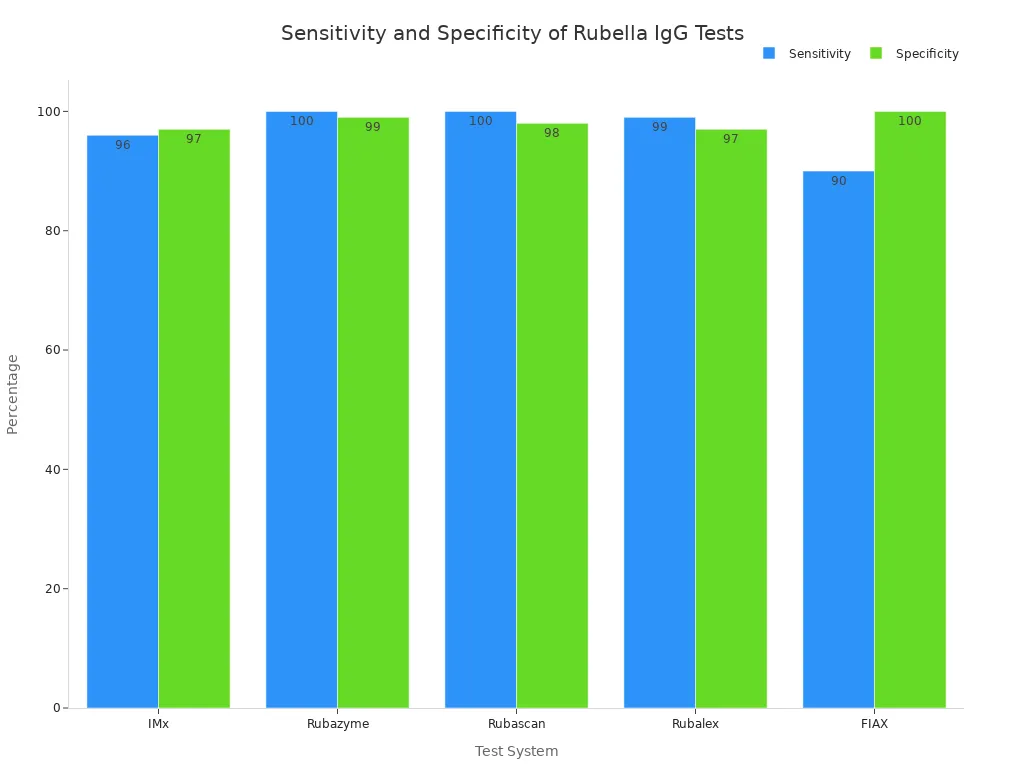
ELISA for Rubella IgG
You will find that ELISA is the most common method for the rubella igg antibody test. The World Health Organization recommends ELISA for ab rubella igg testing because it gives high sensitivity and specificity. ELISA can detect igg antibodies in your blood with great accuracy. Most ELISA tests for rubella show a sensitivity of about 97% and a specificity of 96%. Some brands, like Euroimmun GP ELISA, reach even higher values, with sensitivity up to 99% and specificity up to 97%. This means you can trust the results when you use ELISA for your rubella immune status test.
Tip: ELISA works well for large numbers of samples. Many laboratories use it for routine rubella igg antibody test screening, especially for pregnant women.
ELISA also has some limits. Sometimes, you might get a false negative if other igg antibodies in your blood interfere with the test. Different ELISA kits may give slightly different results. Even so, ELISA remains the gold standard for serologic testing and diagnosis of rubella immunity.
Immunoprecipitation Techniques
Immunoprecipitation methods, such as hemagglutination inhibition (HI) and neutralization tests (NT), were used before ELISA became popular. These tests can also find igg antibodies, but they take more time and need special skills. The sensitivity and specificity of these methods are usually lower than ELISA. For example, some immunoprecipitation assays show sensitivity between 74% and 77% and specificity between 94% and 96%. You may see these methods in research or special cases, but most laboratories now prefer ELISA for routine rubella igg antibody test needs.
Other Rubella Test Options
You might hear about rapid tests and multiplex assays when you look for rubella testing. Rapid tests give quick results and help in places where you need answers fast. Multiplex assays can check for several antibodies at once, including igg antibodies for rubella. These tests save time and money, especially when many people need testing for rubella or other diseases.
Multiplex bead immunoassays are now common in many laboratories.
These tests can process many samples in about three hours.
The number of rubella igg antibody test requests has grown by about 20% in recent years, showing the need for faster and more efficient testing.
You can use these newer methods for screening, but ELISA still gives the most reliable results for ab rubella igg and igg serology. If you want to check your rubella titer test or need a rubella test for work or school, ask your healthcare provider which method the laboratory uses.
Note: Always make sure your rubella igg antibody test comes from a trusted laboratory. This helps you get the most accurate results about your immune status.
When to Get a Rubella IgG Antibody Test
Knowing when to get a rubella igg antibody test helps you protect yourself and others. You may need laboratory testing in several situations. The timing of antibody testing for rubella can affect the accuracy of your results. You should understand the main scenarios for testing and how to interpret your results.
Pregnancy and Preconception
If you plan to become pregnant, you should ask your healthcare provider about a rubella igg antibody test. This test checks for igg antibodies in your blood. A positive test result of 1.0 or higher means you are immune to rubella. If your result is 0.7 or lower, you do not have enough antibodies for immunity. Testing for rubella during preconception or early pregnancy is important because undetected infection can cause serious problems for your baby.
Risk Type | Description |
|---|---|
Passing rubella to your baby can cause birth defects like heart and vision problems, deafness, and intellectual disability. | |
Miscarriage | You may lose your baby before 20 weeks of pregnancy. |
Stillbirth | You may lose your baby after 20 weeks of pregnancy. |
Preterm birth | Your baby may be born before 37 weeks of pregnancy. |
You should get tested for ab rubella igg even if you do not have symptoms. The rubella blood test helps with diagnosis and protects your future child.
Healthcare Workers and High-Risk Groups
If you work in healthcare or belong to a high-risk group, you need regular rubella igg antibody test screening. Hospitals and clinics use laboratory testing to keep patients and staff safe. If you have presumptive immunity, you do not need work restrictions after exposure. If you do not have immunity, you should stay away from work from the 7th day after exposure to the 23rd day after the last exposure. If you develop symptoms, you should not work for 7 days after the rash appears.
Healthcare workers with immunity: No work restrictions, but monitor for symptoms.
Healthcare workers without immunity: Exclude from work during the risk period.
Healthcare workers with symptoms: Exclude from work for 7 days after rash onset.
Suspected Rubella Exposure
If you think you have been exposed to rubella, you should get a rubella igg antibody test. Timing matters for accurate results. Antibody testing for rubella should happen five days after the rash starts. If you test too early, you may get a false negative. If you test within three days of rash onset, repeat the test in two to four weeks.
The table below shows what your test results mean and what you should do next:
IgM Test Result | IgG Test Result | Interpretation | Recommended Action |
|---|---|---|---|
Negative | Negative | Susceptible to infection | Repeat IgM and IgG tests 3 to 4 weeks from suspected exposure |
Negative | Positive | Immunity to rubella | No action needed |
Positive | Negative | Acute or recent rubella infection or false positive/unspecific IgM | Test a second sample 5 – 10 days later, if available, and perform IgG avidity in case of positive IgG |
Positive | Positive | Acute or recent infection (or false positive/unspecific IgM) | Perform IgG Avidity test 5 –10 days later on 2nd sample. Also, repeat IgM and IgG tests with 2nd sample to confirm 1st result. |
Negative | Negative | No acute infection, susceptible to infection | Vaccination is recommended. |
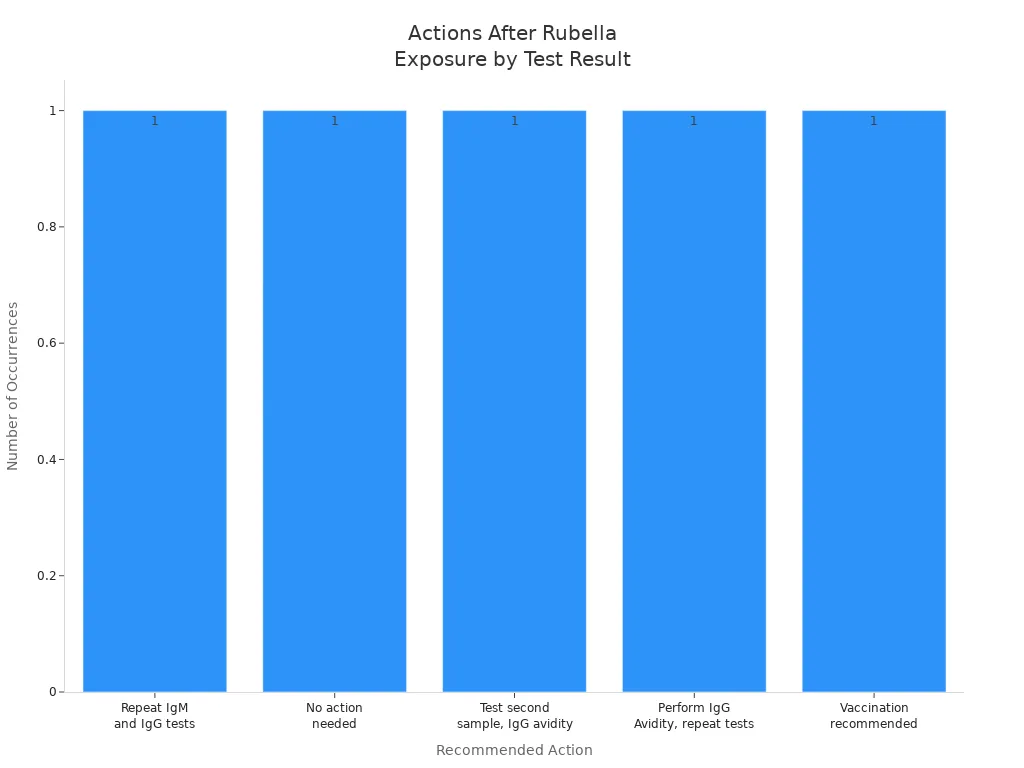
You should always follow up with your healthcare provider for igg serology and diagnosis. Testing for rubella helps you know if you are immune or need vaccination. Laboratory testing gives you clear answers about your antibodies and immune status.
Understanding IgG and Immunity to Rubella
What IgG Results Mean
You need to know what your rubella igg antibody test results mean. IgG antibodies protect you from rubella infection. When you have enough rubella antibodies, you are considered immune. The rubella igg antibody test measures the amount of igg in your blood. If your test shows more than 10 IU/mL, you have seroprotection. If your result is less than 7 IU/mL, you are not protected. A result between 7 and 10 IU/mL means your immunity is unclear.
The World Health Organization sets 10 IU/mL as the protective level for rubella antibodies. This helps laboratories use a clear standard for diagnosis and serologic testing.
Here is a quick guide:
More than 10 IU/mL: You are immune to rubella.
Less than 7 IU/mL: You are not immune.
Between 7 and 10 IU/mL: Your status is equivocal. You may need repeat antibody testing.
Laboratory testing uses methods like automated chemiluminescent immunoassays to measure igg antibodies. These tests follow WHO reference standards for accuracy.
Method | Description |
|---|---|
Automated paramagnetic particle chemiluminescent immunoassay | Measures virus-specific rubella IgG levels. |
WHO reference standards | Used to determine antibody titer for each sample. |
Limit of detection | 0.5 IU/mL with a coefficient of variation of 6%. |
Interpreting Rubella Test Outcomes
You should understand how to read your rubella igg antibody test results. The laboratory gives you a number that shows your igg level. Use this table to interpret your results:
Interpretation | |
|---|---|
7 IU/mL or less | Negative – No significant level of detectable rubella IgG antibody. |
8-9 IU/mL | Equivocal – Repeat testing in 10-14 days may be helpful. |
10 IU/mL or greater | Positive – IgG antibody to rubella detected, indicating possible exposure/immunization. |
If you see a positive test, you have rubella antibodies and are likely immune. A negative result means you need vaccination. An equivocal result suggests you should repeat the rubella igg antibody test after two weeks.
Sometimes, doctors look for a four-fold rise in igg titer between two tests. If your igg level increases by four times between acute and convalescent samples, this confirms a recent rubella infection. This helps with diagnosis and guides treatment.
Monitoring vaccine efficacy and immunity requires robust serology and antibody testing. Your rubella igg antibody test gives you clear answers about your immune status.
Rubella Test Process and Next Steps
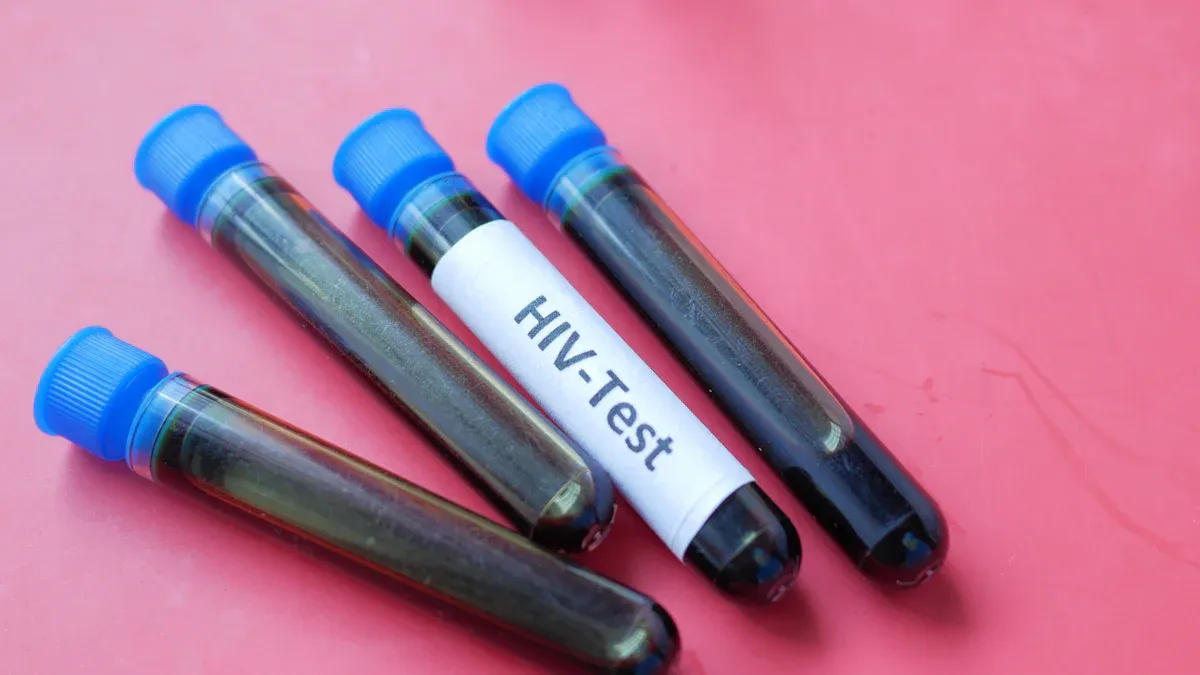
Preparing for the Test
You can prepare for a rubella igg antibody test with a few simple steps. Most people do not need to fast before the test. You should talk to your doctor if you are pregnant or take any medications or supplements. Some medicines can affect your results. You should avoid exercise, yoga, smoking, or drinking alcohol before the test. These actions help you get the most accurate results.
Description | |
|---|---|
Fasting | Not required, but consult your physician based on health condition. |
Medication Discussion | Pregnant females should inform their doctor about any medications or supplements. |
Physical Activity | Avoid workouts or yoga before the test. |
Smoking/Alcohol | It is advised to skip smoking or drinking alcohol to ensure accurate test results. |
You do not need to change your diet before rubella testing. Always let your healthcare provider know about any medicines or supplements you use.
What Happens During Testing
You will visit a laboratory for the rubella igg antibody test. The phlebotomist will ask you to make a fist and tie a band around your arm. This makes your veins easier to see. The area where blood will be drawn gets cleaned. The phlebotomist uses a thin, sterile needle to collect your blood. After the blood is drawn, you get a bandage on the spot. Your blood sample goes into a vial, which is sealed and labeled for laboratory testing.
Here are the steps you will follow:
Make a fist and have a band tied around your arm.
The phlebotomist cleans the area for the blood draw.
A needle is used to collect your blood.
A bandage is placed on your arm after the test.
Your blood sample is sent to the laboratory for antibody testing.
After the Results
You usually get your rubella igg antibody test results within 1 to 2 days from most labs. Some hospitals may take up to 7 days. Your doctor will explain what your results mean. If your test shows you are not immune, you should avoid contact with people who have rubella symptoms. You may need the MMR vaccine, especially if you plan to become pregnant. If you are pregnant and not immune, you should get the vaccine after your baby is born. If your result is unclear, you may need another test or see a specialist. Always report any rubella symptoms to your healthcare provider.
Source | Turnaround Time |
|---|---|
LabCorp | 1 – 2 days |
UNC Medical Center | Up to 7 days |
Tip: If your rubella igg antibody test is negative, ask your doctor about vaccination and ways to protect yourself from rubella.
You can use your results to make decisions about your health. Laboratory testing helps you know if you have antibodies and if you are immune to rubella.
When you choose a laboratory method for rubella IgG antibody test, focus on accuracy, reliability, and the right context for your needs. You should always interpret rubella serology and antibody testing results with care. The table below gives practical advice for different groups:
Description | |
|---|---|
Importance of careful interpretation | Rubella IgM and IgG test results must be interpreted with caution to avoid misdiagnosis. |
Collaboration between healthcare providers | Close collaboration between obstetricians and virologists is essential to minimize errors and unnecessary anxiety for patients. |
Contextual interpretation of results | Laboratory results should be interpreted in the context of full clinical details, including vaccination history and any rash contact. |
Avoid unnecessary testing | Tests for rubella IgM should only be conducted if there is a history of rash or contact with a rash. |
Awareness of false positives | Be aware that false positives can occur due to cross-reacting antibodies or other factors, especially in low-prevalence areas. |
You should consult your healthcare provider for personalized laboratory diagnosis and guidance. Take charge of your rubella immunity by staying informed about laboratory testing, antibodies, and immune status.
FAQ
What is rubella and why should you get tested?
Rubella is a viral infection that can spread easily. You should get tested to know if you are immune. Testing helps protect you and others, especially if you plan to have children.
How does the rubella IgG antibody test work?
The test checks your blood for IgG antibodies. If you have enough antibodies, you are immune. Labs use ELISA or other methods to measure your antibody level.
Can rubella cause birth defects?
Yes, rubella can cause birth defects if you get infected during pregnancy. Babies may have hearing loss, heart problems, or vision issues. Testing helps prevent these risks.
Is rubella the same as german measles?
Yes, rubella is also called german measles. Both names refer to the same illness. You may hear doctors use either term.
When should you repeat the rubella IgG test?
You should repeat the test if your result is unclear or if you had recent exposure. Doctors may ask for a second test in two weeks to confirm your immune status.

